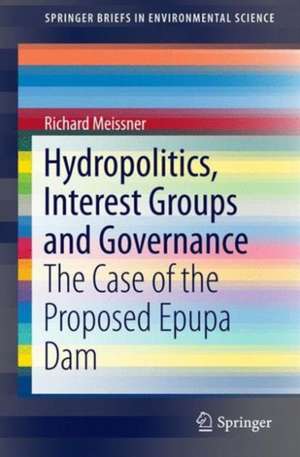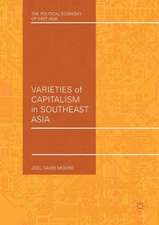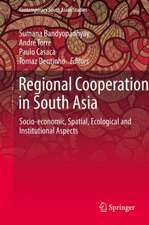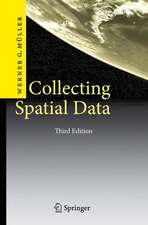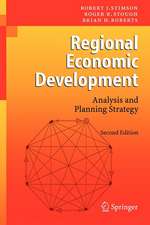Hydropolitics, Interest Groups and Governance: The Case of the Proposed Epupa Dam: SpringerBriefs in Environmental Science
Autor Richard Meissneren Limba Engleză Paperback – 27 iun 2016
Din seria SpringerBriefs in Environmental Science
-
 Preț: 348.77 lei
Preț: 348.77 lei -
 Preț: 382.57 lei
Preț: 382.57 lei -
 Preț: 378.12 lei
Preț: 378.12 lei -
 Preț: 381.98 lei
Preț: 381.98 lei -
 Preț: 347.80 lei
Preț: 347.80 lei - 15%
 Preț: 464.18 lei
Preț: 464.18 lei -
 Preț: 378.12 lei
Preț: 378.12 lei -
 Preț: 377.53 lei
Preț: 377.53 lei -
 Preț: 379.09 lei
Preț: 379.09 lei -
 Preț: 381.00 lei
Preț: 381.00 lei -
 Preț: 383.93 lei
Preț: 383.93 lei -
 Preț: 175.58 lei
Preț: 175.58 lei -
 Preț: 475.83 lei
Preț: 475.83 lei -
 Preț: 380.07 lei
Preț: 380.07 lei -
 Preț: 378.92 lei
Preț: 378.92 lei -
 Preț: 411.93 lei
Preț: 411.93 lei -
 Preț: 375.62 lei
Preț: 375.62 lei -
 Preț: 375.45 lei
Preț: 375.45 lei -
 Preț: 378.92 lei
Preț: 378.92 lei -
 Preț: 377.57 lei
Preț: 377.57 lei -
 Preț: 377.35 lei
Preț: 377.35 lei -
 Preț: 378.34 lei
Preț: 378.34 lei -
 Preț: 344.67 lei
Preț: 344.67 lei -
 Preț: 374.30 lei
Preț: 374.30 lei -
 Preț: 362.43 lei
Preț: 362.43 lei -
 Preț: 446.26 lei
Preț: 446.26 lei - 5%
 Preț: 361.96 lei
Preț: 361.96 lei -
 Preț: 376.43 lei
Preț: 376.43 lei -
 Preț: 380.63 lei
Preț: 380.63 lei -
 Preț: 375.84 lei
Preț: 375.84 lei - 15%
 Preț: 463.20 lei
Preț: 463.20 lei -
 Preț: 383.33 lei
Preț: 383.33 lei -
 Preț: 375.23 lei
Preț: 375.23 lei -
 Preț: 377.57 lei
Preț: 377.57 lei -
 Preț: 381.59 lei
Preț: 381.59 lei -
 Preț: 379.48 lei
Preț: 379.48 lei -
 Preț: 376.04 lei
Preț: 376.04 lei -
 Preț: 413.84 lei
Preț: 413.84 lei -
 Preț: 381.81 lei
Preț: 381.81 lei -
 Preț: 352.28 lei
Preț: 352.28 lei -
 Preț: 381.81 lei
Preț: 381.81 lei -
 Preț: 381.98 lei
Preț: 381.98 lei - 5%
 Preț: 331.65 lei
Preț: 331.65 lei -
 Preț: 375.62 lei
Preț: 375.62 lei -
 Preț: 377.95 lei
Preț: 377.95 lei -
 Preț: 413.45 lei
Preț: 413.45 lei -
 Preț: 267.19 lei
Preț: 267.19 lei -
 Preț: 373.73 lei
Preț: 373.73 lei -
 Preț: 375.62 lei
Preț: 375.62 lei
Preț: 378.80 lei
Nou
Puncte Express: 568
Preț estimativ în valută:
72.48€ • 75.95$ • 59.92£
72.48€ • 75.95$ • 59.92£
Carte disponibilă
Livrare economică 22 martie-05 aprilie
Preluare comenzi: 021 569.72.76
Specificații
ISBN-13: 9783319388861
ISBN-10: 331938886X
Pagini: 120
Ilustrații: XI, 96 p. 18 illus. in color.
Dimensiuni: 155 x 235 x 7 mm
Greutate: 0.2 kg
Ediția:1st ed. 2016
Editura: Springer International Publishing
Colecția Springer
Seria SpringerBriefs in Environmental Science
Locul publicării:Cham, Switzerland
ISBN-10: 331938886X
Pagini: 120
Ilustrații: XI, 96 p. 18 illus. in color.
Dimensiuni: 155 x 235 x 7 mm
Greutate: 0.2 kg
Ediția:1st ed. 2016
Editura: Springer International Publishing
Colecția Springer
Seria SpringerBriefs in Environmental Science
Locul publicării:Cham, Switzerland
Cuprins
Introduction: Interest Groups, he Kunene River and Epupa’s Imperative.- The Kunene River’s State-centric Hydropolitical History.- The Transnational Role and Involvement of Interest groups in the Epupa Debate.- Interest groups, Scalar Politics and Temporality.
Caracteristici
Based on alternative theoretical positions (such as social constructivism) to so-called “dominant” theoretical positions in International Relations, like neoliberal institutionalism and neorealism Provides an in-depth analysis of the ability of communal interest groups to influence state and international institutions at various political scales Presents a framework for analysis that can be applied to research similar issues and trends in water politics and governance Includes supplementary material: sn.pub/extras
